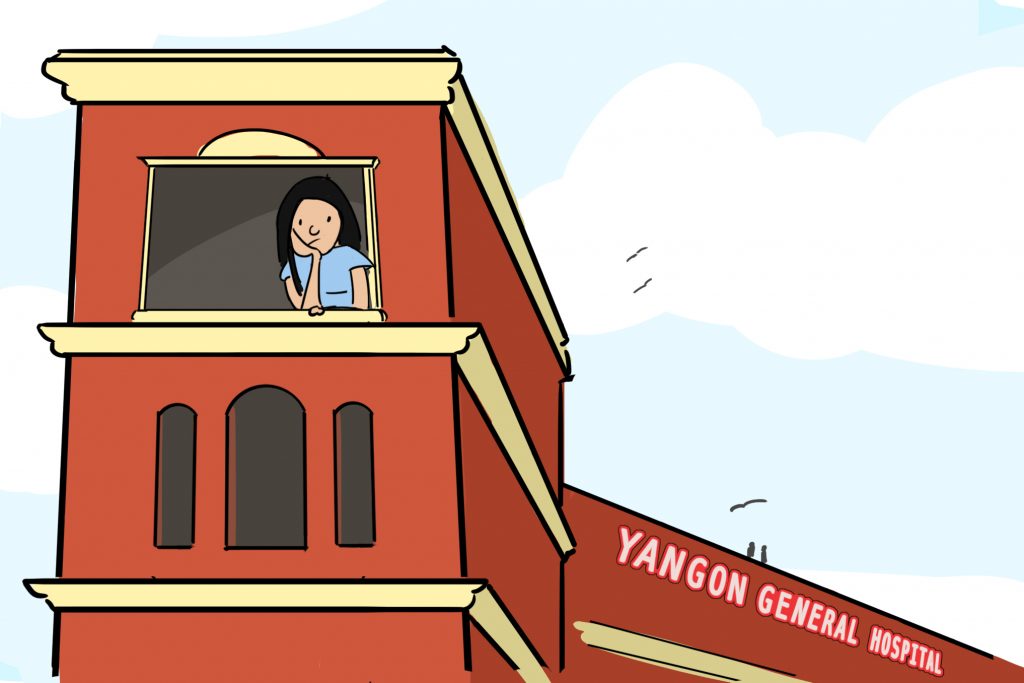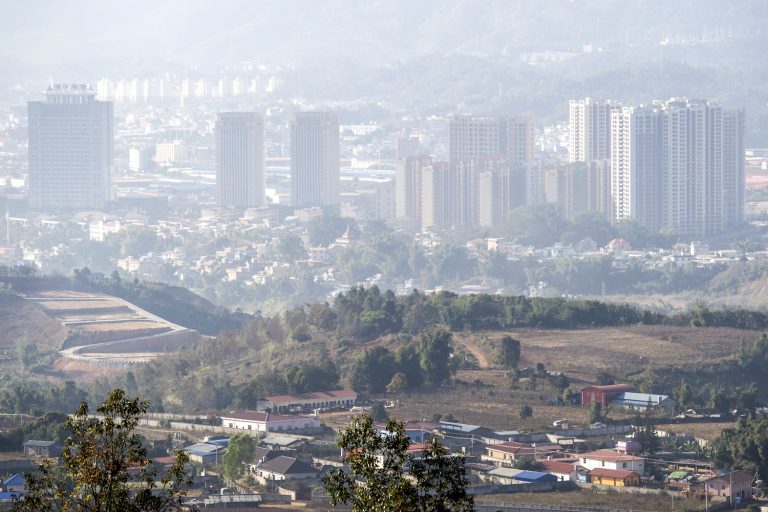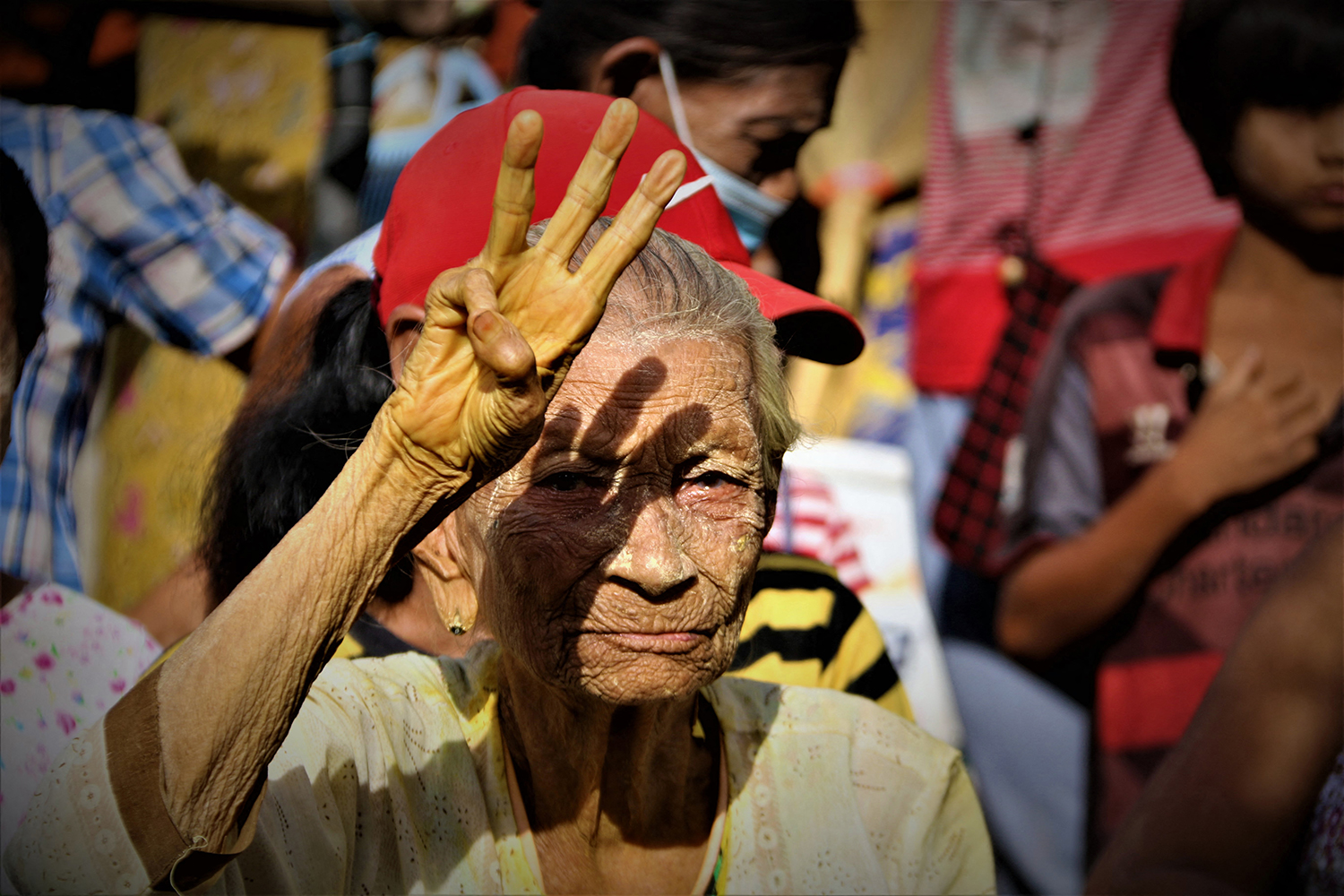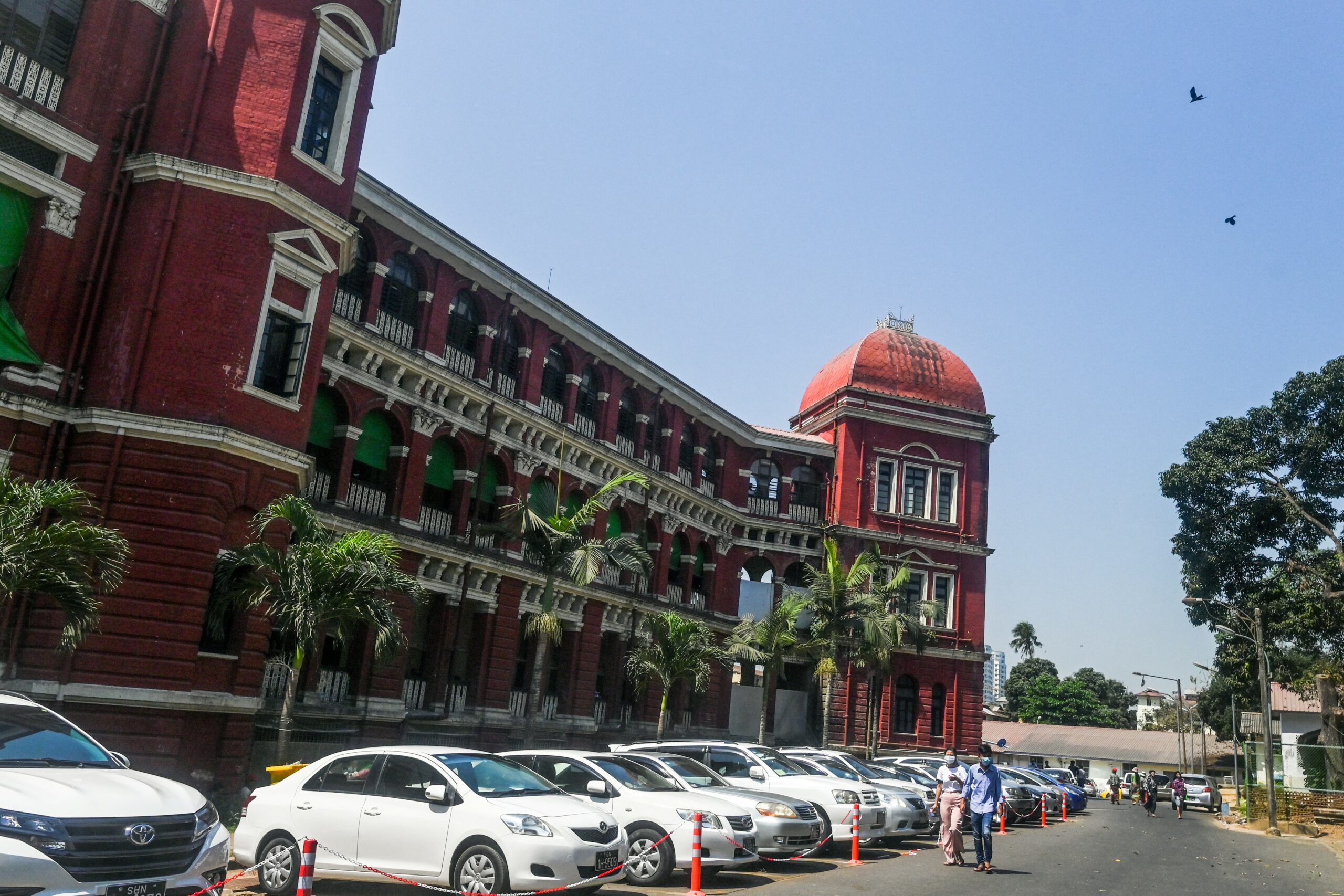Accommodations for suspected COVID-19 patients at the East Yangon General Hospital are far from five-star, but it’s hard to complain about your material conditions when you’re watching an under-resourced medical team strain under the weight of a surge in cases.
By NAW BETTY HAN | FRONTIER
On the evening of September 1, I caught a cold. My throat grew sore, I started to cough, and – terrifyingly – I lost my sense of taste.
We don’t yet quite know why, but one tell-tale sign of COVID-19 seems to be the loss of taste and smell, so I was initially pretty worried. Myanmar was and remains in the grip of a surging second wave of the disease, and there were reasons to suspect I might have been exposed.
A colleague who was travelling in Kengtung Township, in eastern Shan State, had also developed symptoms that doctors suspected may be COVID-19 – including the loss of smell. On August 29, he and the photographer he was travelling with were hospitalised in Kengtung, where they were isolated and treated. As soon as they let Frontier know about their situation, the magazine shut its office and ordered everyone to work from home. We had all been in the office for a staff meeting that Friday, August 28.
I told the office I was sick and planned to go to a fever clinic in the morning. When I woke up on September 2, I had lost my sense of smell.
There are 20 fever clinics in Yangon but unfortunately none in Latha Township, where I live, so I had to go to Botahtaung, to the East Yangon General Hospital (sometimes still referred to by its former name, Gandhi Hospital). There were about 10 other people in the hospital lobby waiting for service when I arrived. I didn’t think I would be staying long – probably just a fever check, pharmacy visit, and then go home and rest.
But then I told the nurse I had returned from a trip to Mawlamyine on July 26, that two colleagues were being watched for COVID-19 symptoms in Kengtung, and that I had lost my sense of taste and smell in the past 24 hours.
The nurse sent me to a private room for suspected COVID-19 patients, where medical staff in full protective gear checked my vitals and took a blood sample. The doctor said I could not leave. A nurse told me there were about 25 other suspected patients being isolated at the hospital.
My room, above the fever clinic, was air conditioned and had a water basin and plenty of natural light. I was mostly pleased with the accommodation until I realised there was no toilet. I had to use a plastic pot and bag and leave it for the cleaner to remove every morning. The cleaner, I would soon find out, did not come every morning. My loss of smell felt like a small mercy.
Staff told me they would watch me via CCTV but would not come into physical contact until my test results came in. I had to measure my temperature and blood pressure myself four times a day.
That first night a nurse approached and, trying to keep her distance, administered a swab test. It didn’t hurt, but it still made my eyes water when the tip of the swab hit the back of my nose.
Meals were the standard rice and curry, but the quality was low and the portions small. Given the Ministry of Health and Sports says it’s getting K5,000 per person from the Union government, you’d think the food would be a little better.
On September 3 my fever rose to 38.8 degrees Celsius (102 F). I was given five days worth of paracetamol. On September 4 my first swab test came back negative, and I was administered my second. That one also came back negative. Still, I had a fever and flu-like symptoms. The doctor gave me more medicine and ordered a third swab test. But the third test also came back negative.
What to make of my loss of taste and smell? Are the tests no good? Were these symptoms merely psychosomatic, the result of getting sick while too deeply immersed in COVID-19 news? Whatever the case, my symptoms eventually disappeared and after 12 days I was discharged. They ordered me to stay at home and isolate for another 14 days – an odd order, if the tests are to be believed. Within a couple weeks I was able to smell and taste again.
The facilities were fine – aside from the lack of toilet and irregularity of the cleaning lady, who was supposed to remove the waste. But the nurse said staff are under a lot of stress dealing with the surge in cases, and the hospital is not used to cooking regular meals and cleaning up after so many people on such extended stays, so it seemed hard to complain about much from my end.
“The problem is that we don’t have enough volunteers to help run the facilities,” she said. “We are a small medical team and we’re all working double time to deal with a huge number of patients 24 hours a day.”
From behind a protective mask, standing a few feet away from me, she added, “But we are trying our best.”







